- Introducing Speed Insights: We are thrilled to introduce Speed Insights at Loglib. This is a big addition to our platform allows you to effortlessly gather and visualize real-time user experiences on your website, enabling you to optimize it for the best performance. With Speed Insights, you can delve into user experiences on a per-route, per-location, per device, even per browser and OS for each web vital score, giving you unparalleled insights into your site's speed performance.
Speed Insights is now available to all users across our plans. If you're using loglib tracker npm package (i.e not the cdn or wordpress plugin) to get started, please update your tracker. See Speed Insights Demo.
-
Summary mails: We are pleased to inform you that you will now receive monthly email summaries of your analytics data. Please stay tuned, as we have plans to roll out customization options for email reports exclusively for our Pro users in the coming week.
-
Blogs: We are excited to announce the launch of our blogs section. Starting with one related to understanding core web vitals. You can check it out at here
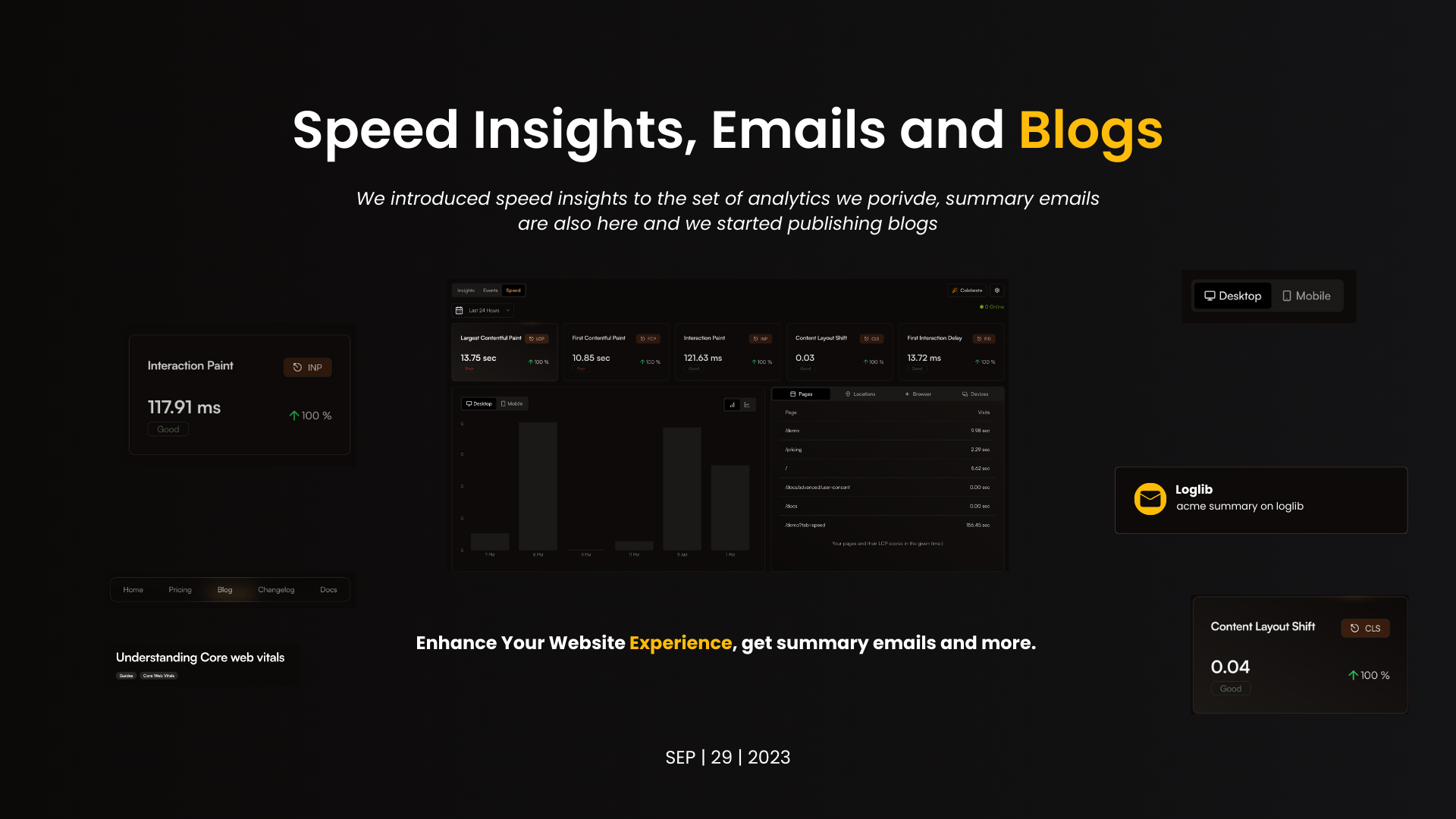
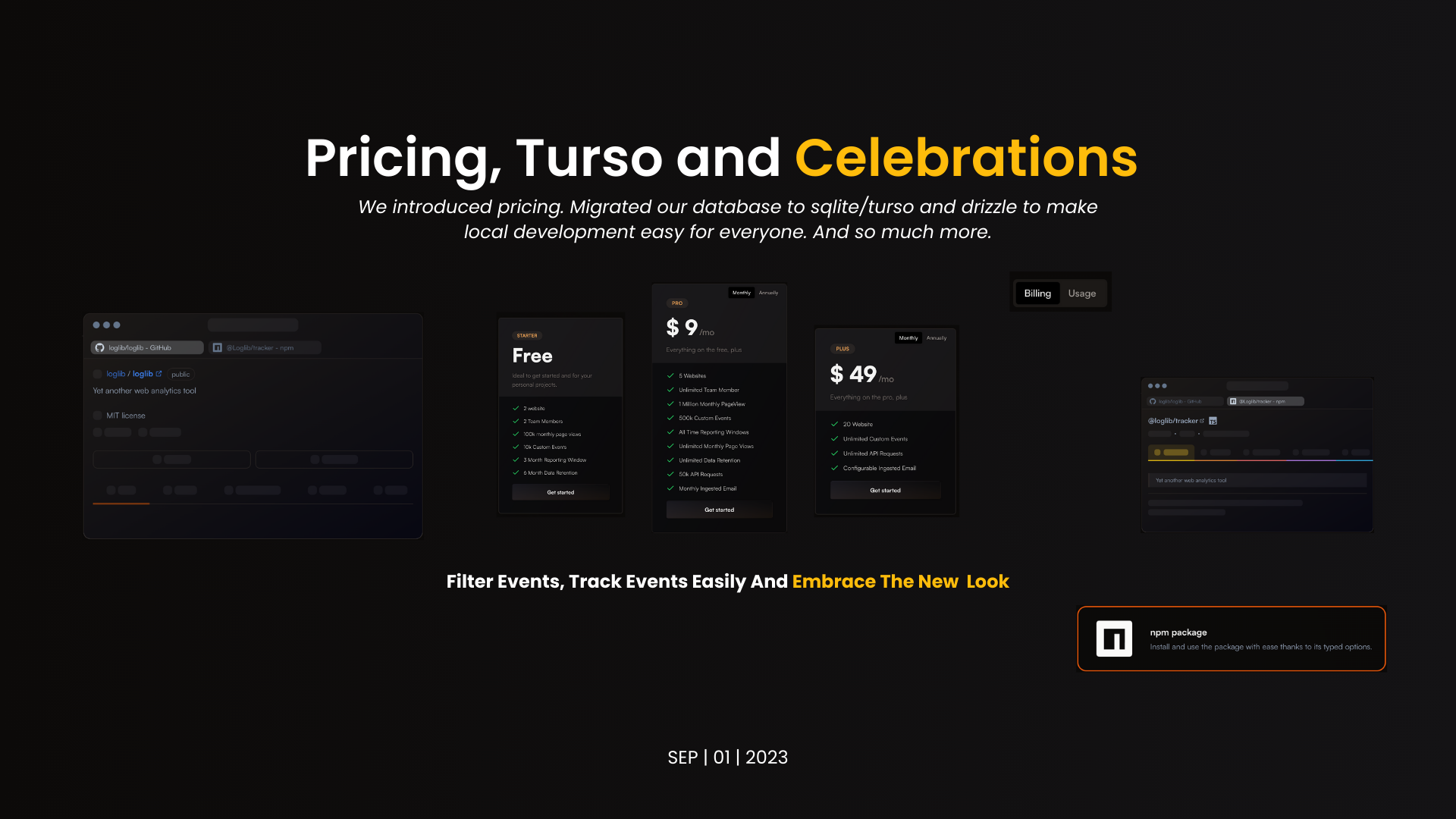
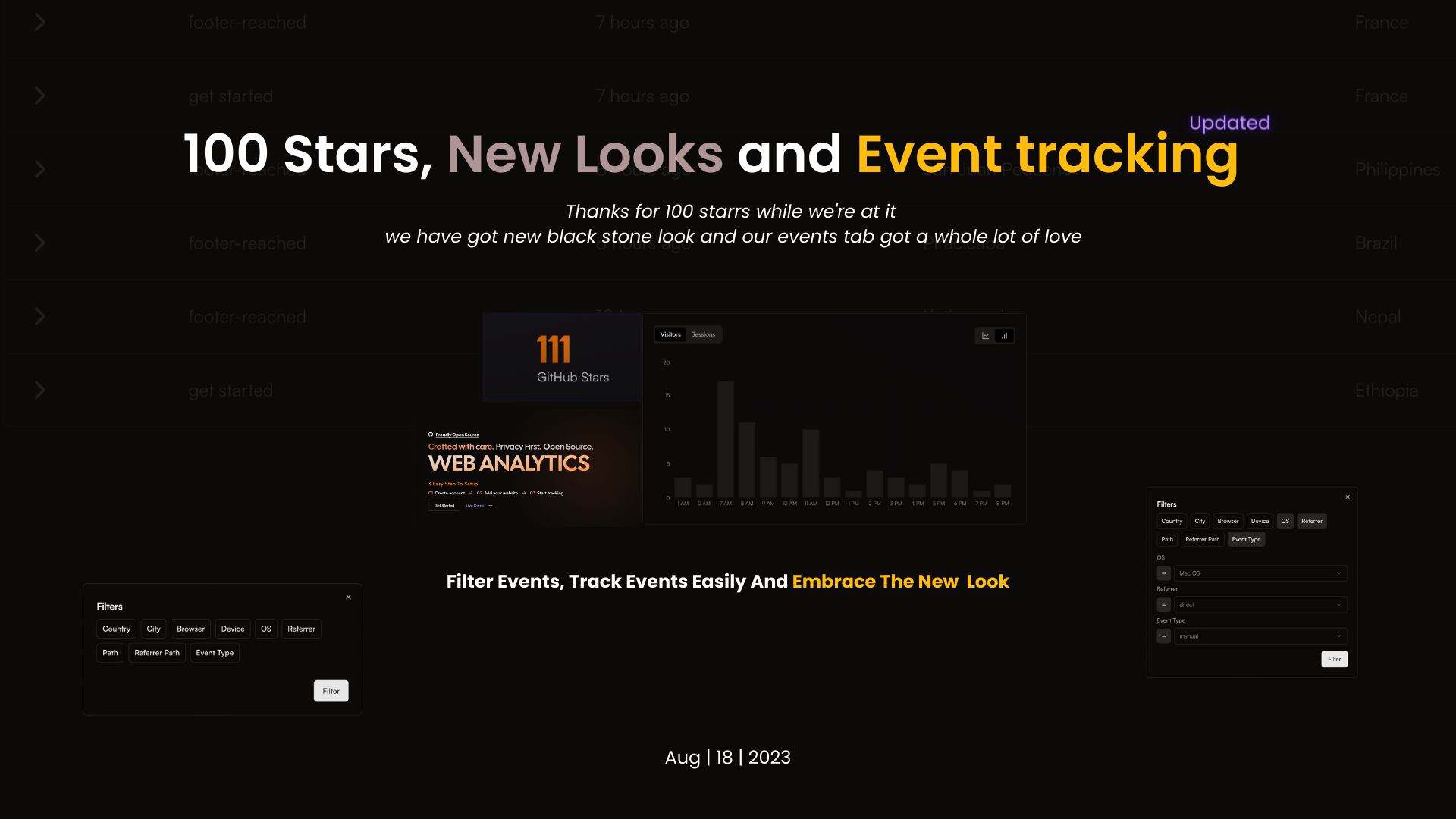
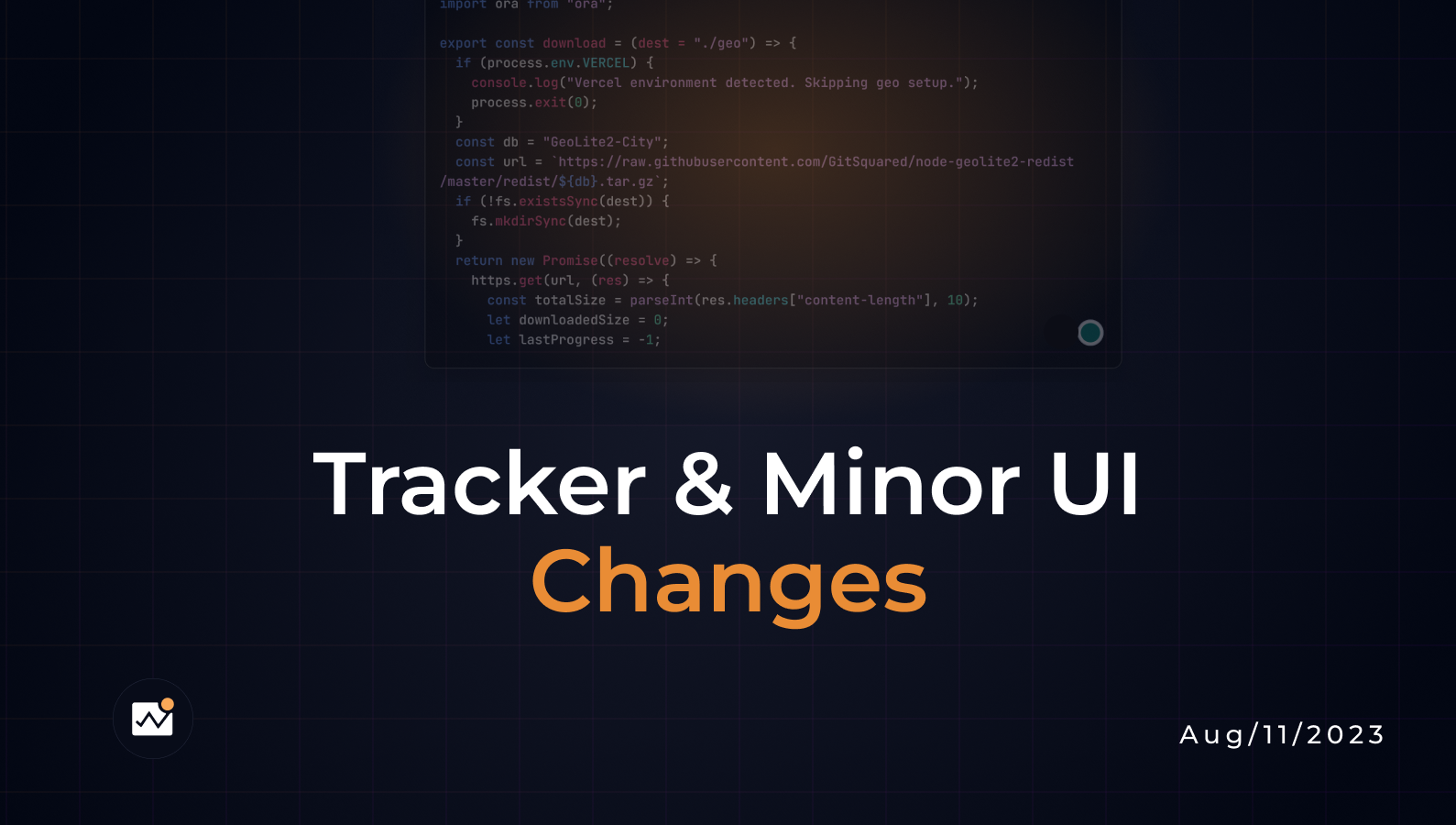
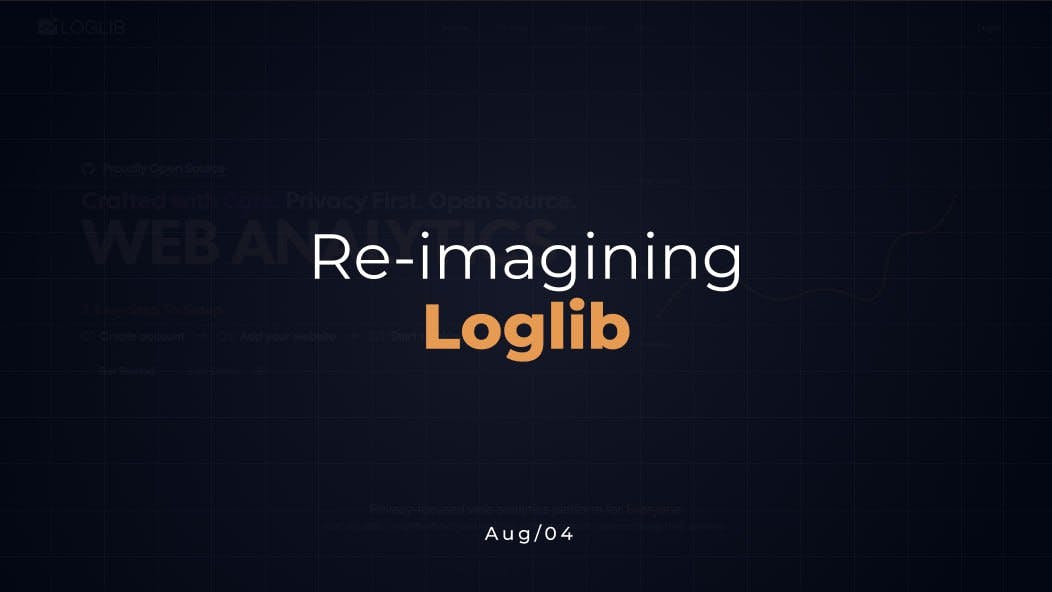

.png&w=3840&q=75)